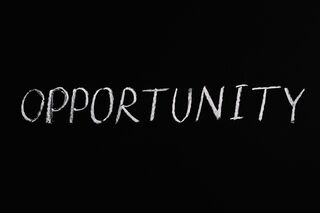Wisdom
Tweetable Wisdom From Distinguished Psychologists
Pay close attention to mentors and senior colleagues on and off social media.
Posted September 29, 2022 Reviewed by Vanessa Lancaster
Key points
- In the digital age, life tips and lessons are ubiquitous. Generally, they are worth about a dime a dozen.
- Advice from certain well-known psychologists, and other brilliant people who have been around the block a few times, can be invaluable.
- The most worthy nuggets of wisdom may come from those who are generally sparing in providing such advice.
- A lot of that good advice boils down to a recommendation to be open-minded.
It is common to see snippets of advice and wisdom in news and social media: tips, and life lessons promising to improve productivity at work, show the way to financial success and early retirement, enhance mental or physical health, or improve other aspects of life. And who hasn’t clicked on one of those “5 Weird but Effective Tricks…” links. It seems you may have just done so yourself.

There was plenty of good advice and wisdom to go around before the digital age, and there still is, even if it is not very prominent in social media.
Teachers, mentors, and senior colleagues were and still are excellent sources. Many of mine have not been shy about coming out and spouting unsolicited recommendations about all kinds of things. One even earned the nickname “Delphic Oracle” for this.
Know What You Don't Know
An example that has stuck in my mind from a colleague who often made such pronouncements was something like, “Know what you don’t know.” Meaning, "be prepared to discover that you are ignorant on certain topics."
It is one thing to lack certain kinds of knowledge. This is true of everyone. It is another to reveal your ignorance, for example, by expressing confidence in a belief that is just plain wrong, and then getting called out on it by someone who knows better. Getting called out is especially likely during discussions that get you into intellectual territory at the border, or beyond your expertise. What you don’t know can hurt you. Don’t make it worse via unjustified confidence or showing surprise when corrected by someone who should know.
“Delphic Oracle” types, with so many pearls of wisdom to share, can make you wonder if they have internalized those of their nuggets that recommend modesty. Still, whenever they came right out and gave straightforward advice, we students and trainees were sure to pay attention. But I have been more often impressed with occasional tidbits from those who were otherwise more inclined to teach implicitly, or by setting an example.
So I thought I would think back and see if I could imagine some Twitter or LinkedIn posts that might have come from some former teachers and mentors had they lived in the current era, as unlikely as I think it is that they would have actually posted them in social media.

Don't Say "Go Away" Before Opportunity Even Knocks
Jerry E. Singer, the co-author of Schachter-Singer's two-factor theory of emotion, occasionally brought discussions to a standstill with pithy observations whose implications extend well beyond the immediate topic.
One was something like, “Don’t reject an offer you have not gotten yet,” said when someone questioned the desirability of an opportunity such as a newly posted job opening. Another was along the lines of, “Don’t assume hostility when ignorance is a more parsimonious explanation” in response to comments about someone’s unfortunate behavior.

If You Make use of Literary References, Be Sure You Get Them Right
But my favorite Jerry Singerism concerned a response to grant application reviews in which the principal investigator repeatedly referred to their critics as "Methodological Cassandras."
Jerry pointed out that, in Greek mythology, Cassandra made prophecies about impending disasters that were fated to come true, but that no one ever believed ,because of an intervention by Apollo, whom she had angered. So, regarding the accuracy of that negative grant application review...
Simplistic Thinking May Lead to Poor Choices. But for Action to Be Taken, Some Simplification May Be Required
Another brilliant psychologist whose sparingly given advice was always worthy of one’s attention was Stanley Milgram. He once brought a research colloquium to a halt when the speaker--I believe it was Peter Suedfeld--concluded that a study had shown that discourse surrounding conflict becomes less complex just before hostility breaks out, an apparent indictment of simplistic thinking. Milgram responded, "perhaps thinking must be simplified before any action can take place.” As the audience processed Milgram’s insightful take, the speaker did not miss a beat in responding by saying something like, “Other courses of action were also available to them.” A fascinating discussion ensued.
The "So-What" Response Is Not Enough
I once received devastating feedback from my soon-to-become graduate advisor, David C. Glass. A research proposal I made in a seminar presentation was greeted with a rhetorical question, "So what?" "What if you obtain the expected results?"
Later that same semester, during a research methods class I took with Stanley Milgram, he suggested a group project: Milgram proposed a study to test how far an attractive-looking package on a bench would have to be from a person sitting next to it for passersby to assume it did not belong to the person.
I blurted out the same "So what?" response David Glass gave.
Milgram immediately replied, "The 'So-what' Response is not enough."
In retrospect, I saw that both Professors Glass and Milgram were correct. David Glass was a pioneer and founder of the field of Health Psychology. One of the main points of his seminar was that, in research on stress, it is important to incorporate a clear pathway to a practical outcome of some kind, such as physical disease. My research proposal had not done a good job of that.
In Stanley Milgram's seminar, the objective was for the students to develop a class project. He was seeding the discussion by describing a potentially interesting phenomenon ripe for theoretical analysis. It was for us to build out the potential implications.
Do You See a Theme Here?

Unintentionally, these recollections seem to have a theme: All, in one way or another, involve advice to keep your mind open. What don’t I know about his topic? Are you sure you wouldn’t want that job? Convinced there was hostile intent? Your critics do not have a point at all? Poor choices may reflect simplistic thinking but doesn't any decision require focusing your thoughts and narrowing options? That idea has no useful implications, or can you just not think of any?
In a world of strong feelings and opinions, and people telling us what we should and should not think, open-mindedness may be underrated.
Copyright Richard J. Contrada, 2022
References
Schachter, S., & Singer, J. E. (1962). Cognitive, Social, and Physiological Determinants of Emotional State. Psychological Review, 378-399.
Suedfeld, Peter; Tetlock, P.E.; Streufert, S. "Conceptual/integrative complexity". Motivation and Personality: Handbook of Thematic Content Analysis.: 393–400.
Milgram, S. (1970). The experience of living in cities: A psychological analysis. In F. F. Korten, S. W. Cook, & J. I. Lacey (Eds.), Psychology and the problems of society (pp. 152–173). American Psychological Association. https://doi.org/10.1037/10042-011
Glass, D. C. (1977). Behavior patterns, stress, and coronary disease. Lawrence Erlbaum.




